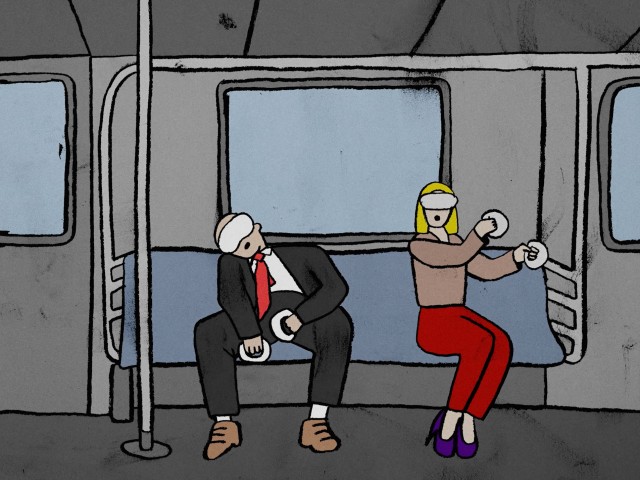The story of a young boy forced to leave his war-torn hometown to start a new life in the US with his mother, S/W alum Daniel Zvereff is back on our website with his latest film Drago. Like his previously featured short, Life Is a Particle Time Is a Wave, Drago offers a meditation on the passing of time and its cyclical nature. However, the narrative here is much more tangible, centered on the lives of three generations and how they all impact one another.
Reflecting on the origins of his short, Zvereff explained to us that Drago comes from a very personal reflection on his own grandfather’s life – a man who experienced displacement many times across Ukraine, Russia, China, and the Philippines before making it to the US. He confessed “I know very little. I remember he spoke seven languages and could draw quite well”.
“The immigrant experience is so universal that it transcends specific places or individual stories”
Yet, the film isn’t named after his grandfather, with the director admitting that doing so would have “felt like opening a can of worms [he] wasn’t prepared to handle”. Instead, the film’s title came from the father of his childhood best friend – a man who worked two jobs, day and night, yet still found the time to teach him how to ride a bike. “The immigrant experience is so universal that it transcends specific places or individual stories”, Zvereff added. Drago perfectly intertwines those two central themes: immigration with the hope of one day returning home and generational transmission.
“This film was born from that longing—a wish fulfilled, a shared moment between my grandfather and me”, Zvereff reflects. Adding that it now represents “a memory I wish we had experienced together, one that will forever remain imaginary”, this sentiment is very much conveyed in the visual language of the film.
From the opening shot, Drago exudes a dreamy, sometimes nightmarish, quality that immerses the viewer and highlights the passage of time as a central theme. Despite the specifics of the narrative, the location and time do not seem to matter. Instead, the focus is on the point of view and the experience of the main protagonist – the small mundane moments that will carry some significance to him. The saying “a picture is worth a thousand words” has rarely felt more fitting. Visually, the frames are carefully built to not only convey a lot narratively and emotionally, but also to create this line between the past, the present, and the cyclical nature of life.

“A few thousand sheets of paper, countless charcoal pencils, each cel is photographed brought into Lightroom and color corrected then exported, sequenced, colored in Photoshop, and then processed in After Effects to render a clip ready for editing in Premiere” – Zvereff discussing his production
The pacing and the score also work to effectively echo the titular’s character perception of his reality, and how much agency he has over them. While the narrative does not shine through its originality, its authenticity is what makes it so poignant, with Zvereff succeeding in creating an incredible bond between his short and its audience. Drago also serves a beautiful love letter to all the immigrant parents that have sacrificed a lot to provide a better situation for their kids, it is also filled with hope. Zvereff finds a narratively clever and emotionally powerful conclusion to Drago’s story, once more reflecting on the two main themes at the core of the film.
Premiering at the 2024 edition of Sundance, Drago went on to have a great festival career, including a stop at the Palm Springs ShortFest, ahead of its online debut as a Vimeo Staff Pick. Zvereff is currently working on a number of different projects including a feature film, and a series.

 Céline Roustan
Céline Roustan